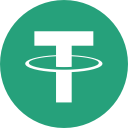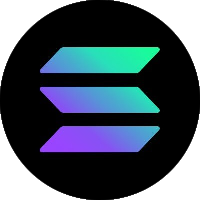
Coinbase Wallet ile Locus Chain satın alın
Locus Chain, kripto dünyasına açılan kapınız olan Coinbase Wallet üzerinden takas edilebilir.
Locus Chain, yalnızca Coinbase Wallet aracılığıyla kullanılabilir. Coinbase Wallet'taki varlıklar Coinbase tarafından tutulmaz. Coinbase Wallet kullanımı bu şartlara tabidir.
Yatırım Riski
Locus Chain hakkında
Kaydolun, 200 $'a varan ödül kazanın
İlk satın alımınızı yaptıktan sonra ücretsiz kripto kazanın. Şartlar geçerlidir.

2021'de birden fazla Coinbase programı kapsamında (çekilişler hariç) kullanıcı başına tahminî ortalama tasarruf ve kazanılan ortalama ödülün toplamı. Bu tutara Coinbase One kapsamında alınmayan ücretler (abonelik ücreti hariç), Coinbase Card ödülleri ve staking ödülleri dâhildir.
Piyasa
İlişkili Varlıklar
Locus Chain Hesaplayıcı
Kılavuzlar
Coinbase Bytes
Locus Chain bu hafta yükselişte.
Locus Chain fiyatı son bir saat içinde %0,15 increased ve son 24 saat içinde %4,13 decreased. Locus Chain fiyatı geçtiğimiz hafta %42,67 risen. Güncel fiyat, 219,31 B $ tutarındaki 24 saatlik işlem hacmiyle LOCUS başına $0,0192. Locus Chain şu anda tüm zamanların en yüksek düzeyinin ($0,24) %91,88 altında değerleniyor. Bu, piyasaya sürülmesinden bu yana Locus Chain için ödenen en yüksek fiyattır.
Locus Chain varlığının dolaşımdaki mevcut arzı 2.081.062.787,347 LOCUS olduğundan Locus Chain varlığının toplam piyasa değeri 2.081.062.787,347 olarak hesaplanıyor.
SSS
Belirli içerikler, Coinbase Inc. veya onun iştirakleri ile ilişkisi olmayan üçüncü taraflarca hazırlanmıştır. Coinbase bu tür içeriklerden sorumlu değildir. Coinbase, içerikteki herhangi bir hata veya gecikmeden ya da herhangi bir içeriğe bağlı olarak gerçekleştirilen eylemlerden sorumlu değildir. Sunulan bilgiler yalnızca bilgilendirme amaçlıdır ve yatırım tavsiyesi değildir. Bu bilgiler, belirli bir dijital varlığın satın alınması veya satılması ya da belirli bir yatırım stratejisinden faydalanılması yönünde bir tavsiye niteliği taşımaz. Coinbase belirli bir varlık için sunulan bilgilerin doğruluğu, uygunluğu veya geçerliliği konusunda herhangi bir beyanda bulunmamaktadır. Gösterilen fiyatlar sadece örnek amaçlıdır. Güncel kripto fiyatları ve ilgili istatistikler değişiklik gösterebilir. Sunulan veriler, Coinbase ve diğer kripto borsalarında takas edilen varlıkları yansıtabilir.



































